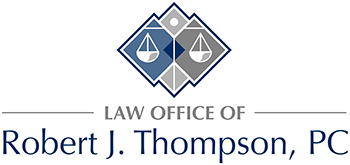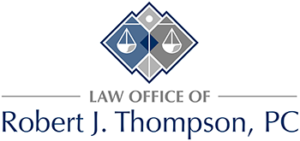Workers' Compensation

Whether you are a professional football player in the NFL or working for a municipality or government employer, you are ALWAYS eligible for workers' compensation with injures in the workplace.
WORKERS' COMPENSATION IS YOUR RIGHT!
Introduction
In the State of Illinois all employers are required to carry workers' compenation insurance to cover injuries born out of the work place. Workers' compensation, also known as "workman's comp," may be provided through a a private insurance carrier, or employers may self-insure. When a worker files a claim, it is not considered a lawsuit, but rather an adjustment of an insurance claim. Employees have the right to do this and they should be compensated fairly for injuries arising out of the work place, including repetitive type injuries like carpal tunnel syndrome.
Medical Benefits & Choice of Physician
Full medical benefits are provided to employees entitled to worker's compensation benefits, with no time or monetary limits. Initial choice of physician is made by the employee. Disability Benefits Provided Payments are made for temporary total disability (TTD) in an amount determined by a percentage of the worker's wage, subject to a weekly maximum payment amount. Payments are to continue for the duration of the disability or until the worker has reached his maximum healing.
Settlement
Settlement Payments are made for permanent total disability (PTD) based upon a percentage of the worker's wage, subject to weekly minimum and maximum payment amounts and calculated entirely on the percentage of loss of bodily use or disfigurement.
Scheduled awards are paid in addition to total temporary disability benefits starting upon termination of the termination of the TTD benefits. Scheduled awards are not reduced because of receipt of TTD benefits. Benefits may be available for serious and permanent disfigurement of the hand, head, face, neck, arm, leg below the knee, or chest above the axillary line. Physical and vocational rehabilitation benefits are available.
Limits on Attorney Fees
Unlike personal injury cases like motor vehicle accidents, Attorney fees for workers' compensation claimants are limited to 20% by statute. Attorneys representing clients in workers' compensation matters will not receive a fee if the worker does not recover a permanent award.
From the Illinois Legislature to the employers who contribute to legislative campaigns in Illinois, Workers' Compensation is based upon a negotiation and compromise between labor, employers, insurance companies and the State of Illinois.
Many people think that they are "suing" their employer when making a workers' compensation claim, but that couldn't be further from the truth. In fact, a workers' compensation claim is nothing like a lawsuit.
Workers' compensation is simply a workers' RIGHT in the State of Illinois. In effect, it is nothing more than an insurance claim, which should give workers' some peace of mind in knowing that their wage calculations have already been considered when the employer determines workers' compensation (disability-type) insurance. In other words, the laborers' pay is determined after the employer considers the cost of the labor. Put this in a summary and workers realize that their own hard work and sweat equity is actually paying for their workers' compensation insurance as well. They may not see it on their check but they are the workers paying for it! Therefore, workers' should not think they are suing their employer when filing a comp claim, they should consider it a right and and adjustable right that they in fact pay for.
Perhaps most important to injured workers is the fact that attorneys' fees are limited by the Illinois Workers' Compensation Commission. Instead of a 40 percent or 33 and 1/3 percent fee against all money in settlement, workers' compensation attorneys are limited to 20 percent of a fee against the settlement finally obtained on behalf of the injured worker.
Workers compensation is in place to ensure that the men and women whose labor supports this nation are also entitled to fair compensation should they be injured by an accident that arises in or about their employment.
FAQWhat is the time deadline to file apersonal injury claim in the State of Illinois?ANSWER:The time deadline to file a lawsuit is called the Statuteof Limitations. The Statute of Limitations for a personal injury claim in theState of Illinois is two (2) years from the date of the accident. Therefore, aninjured party has two years from the date of the accident to file a lawsuit inCircuit Court. If the lawsuit is not filed within two (2) years from the dateof the accident, any claim for damages is barred. However, the Statute ofLimitations cannot expire on a minor, except the Statute of Repose can expireon a minor in a medical malpractice claim. Consult our office for furtherdetails.
What is the time deadline to file aWorkers' Compensation claim in the State of Illinois?ANSWER: The time deadline to file a Workers' Compensation is alsocalled the Statute of Limitations. The Statute of Limitations to file aWorkers' Compensation claim in the State of Illinois is three (3) years fromthe date of the accident or two (2) years from the date the injured employeelast received Workers' Compensation benefits, whichever is later. The Statuteof Limitations on a "repetitive trauma" claim can be various dates.Consult our office for further details.
I was injured at work. What, if any,Workers' Compensation benefits should I receive?ANSWER: Generally, there are three types of Workers' Compensationbenefits. The benefits are as follows: (1) the employer, through its Worker'sCompensation insurer, is responsible to pay, in full, the injured employee'smedical bills; (2) the injured employee is entitled to receive 66-2/3% of theirgross weekly wage, while that employee is temporary totally disabled; and (3)there is a permanency benefit for "permanent" injuries involvingongoing symptoms. Consult our office for further details.
How much does the attorney charge ina personal injury and Workers' Compensation claim?ANSWER: In personal injury andWorkers' Compensation claims, the attorney's fee is usually based upon acontingent fee. A contingent fee agreement is an alternative to an hourlyattorney's fee agreement. Under a contingent fee agreement, there is noattorney's fee charged, if the injured person does not secure a recovery. Thewell accepted contingent fee in a personal injury claim is 33-1/3% of anyrecovery. In an Illinois Workers' Compensation claim, the attorney's fee is setby the State of Illinois at 20% of the injured employee's recovery. Consult ouroffice for further details.
Do I need to hire an attorney, if Ihave a personal injury or Worker's Compensation claim?ANSWER: Insurance companies are in the business of handling injuryclaims. An injured person, without a lawyer, is at a major disadvantage againstan insurance company. An unrepresented individual does not have the knowledgeor expertise to pursue a claim against an insurance company or its attorney. Byhiring an attorney, the injured person "levels the playing field". Arepresented injured person will gain insight into his or her claim which willenable that injured person to make informed decisions based upon the strengthsor weaknesses of the claim, the options available etc. This will ensure thebest results. With an understanding of the issues, the injured person will havethe information to make the best decisions for his or her particular situation.Consult an attorney for further details.
In a personal injury claim such asan automobile accident claim or a Worker's Compensation claim, should I providethe insurance company with a recorded statement?ANSWER: No. It is not advisable to give the opposing insurancecompany a recorded statement. Often, answers on a tape recorded statement canbe interpreted in different ways. Also, sometimes answers do not provide all ofthe details in response to a question. Insurance companies tend to look forcertain answers. Once that information is provided to the insurance company bythe injured person, the insurance company may not be interested in theremaining portion of the answer, a clarification, or further details. InIllinois, an injured person is not required to provide the opposing insurancecompany with a recorded statement. Consult our office for further details.
Q&A Source:
Holley,Rosen & Beard
440 South Grand Avenue West
Springfield, IL 62704
WORKERS' COMPENSATION IS A RIGHT!

